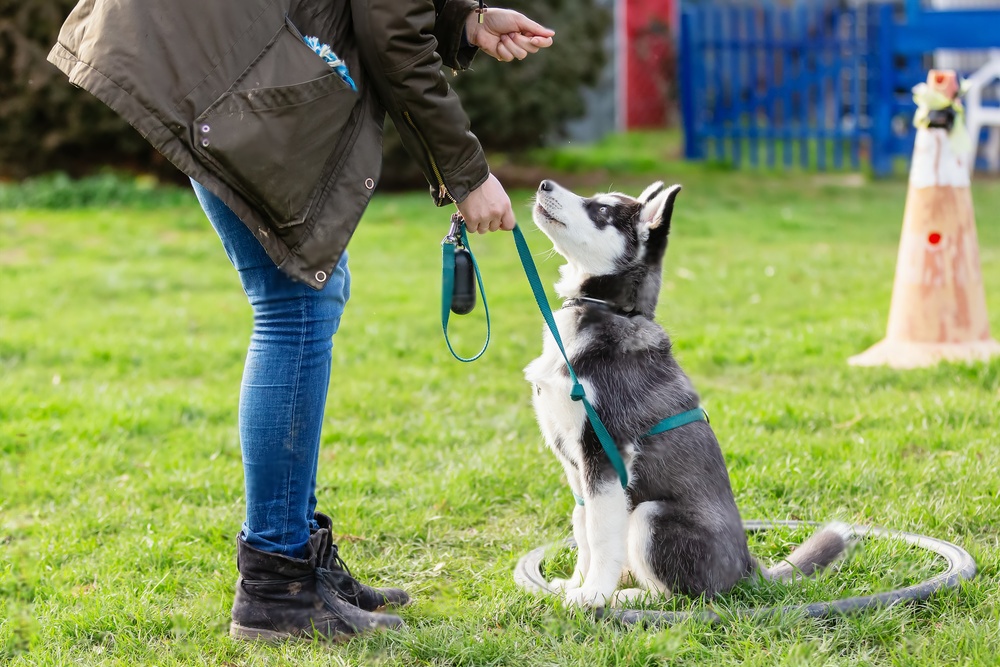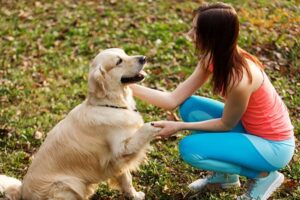Unleash the Joy: Your Ultimate Guide to Canine Companionship

Welcome to the Wonderful World of Dogs
Dogs have been our faithful companions for thousands of years, evolving from wild wolves to the diverse array of breeds we know and love today. These furry friends have captured our hearts with their unwavering loyalty, boundless energy, and unconditional love. Whether you’re a first-time dog owner or a seasoned pet parent, there’s always something new to learn about our canine companions.
At itsaboutdog.com, we’re passionate about helping dog owners navigate the joys and challenges of pet parenthood. From choosing the right breed for your lifestyle to understanding canine behavior and health, we’re here to guide you every step of the way. In this comprehensive guide, we’ll explore the essentials of dog ownership, providing you with the knowledge and tools you need to create a happy, healthy life for your four-legged friend.
Choosing Your Perfect Canine Companion
Understanding Different Dog Breeds
When it comes to selecting a dog, one size definitely doesn’t fit all. With hundreds of recognized breeds and countless mixed-breed options, finding the right dog for your lifestyle can seem overwhelming. Consider factors such as size, energy level, grooming needs, and temperament when making your decision.
Adopting vs. Buying
The choice between adopting a rescue dog or purchasing from a breeder is a personal one. Adoption can give a deserving dog a second chance at happiness, while buying from a reputable breeder may offer more predictability in terms of size, temperament, and health. Whichever route you choose, ensure you’re getting your new family member from a responsible source.
Preparing Your Home for a New Dog
Before bringing your new furry friend home, it’s essential to dog-proof your living space. Remove potential hazards, set up a comfortable sleeping area, and stock up on essentials like food, water bowls, toys, and grooming supplies. Creating a safe and welcoming environment will help your new dog adjust more quickly to their forever home.
The Basics of Dog Care
Nutrition and Feeding
Proper nutrition is crucial for your dog’s health and longevity. Choose high-quality dog food appropriate for your pet’s age, size, and activity level. Establish a consistent feeding schedule and avoid overfeeding, as obesity can lead to various health problems. Itsaboutdog offers comprehensive guides on canine nutrition to help you make informed decisions about your dog’s diet.
Exercise and Mental Stimulation
Regular exercise is vital for your dog’s physical and mental well-being. The amount and type of exercise needed will vary depending on your dog’s breed, age, and health status. Daily walks, playtime, and interactive toys can help keep your furry friend fit and mentally stimulated. Remember, a tired dog is often a well-behaved dog!
Grooming and Hygiene
Maintaining your dog’s coat, nails, and teeth is an important aspect of overall health care. Establish a grooming routine that includes regular brushing, bathing as needed, nail trims, and dental care. Not only does grooming keep your dog looking and smelling great, but it also provides an opportunity to check for any unusual lumps, bumps, or skin issues.
Training and Socialization
Basic Obedience Training
Training is an essential part of responsible dog ownership. Start with basic commands like sit, stay, come, and leave it. Positive reinforcement techniques, using treats and praise, are highly effective and help strengthen the bond between you and your dog. Consistency and patience are key to successful training.
Socializing Your Dog
Proper socialization is crucial for developing a well-adjusted, confident dog. Expose your puppy or newly adopted dog to a variety of people, animals, and environments in a positive, controlled manner. This helps prevent fear and aggression issues later in life. Itsaboutdog.com offers valuable resources on socialization techniques and puppy classes in your area.
Addressing Behavioral Issues
Even well-trained dogs may develop behavioral problems. Common issues include excessive barking, chewing, separation anxiety, and aggression. Understanding the root cause of these behaviors is the first step in addressing them. Consult with a professional dog trainer or behaviorist if you’re struggling with persistent problems.
Health Care and Wellness
Routine Veterinary Care
Regular check-ups with a veterinarian are essential for maintaining your dog’s health. Stay up-to-date on vaccinations, parasite prevention, and dental care. Your vet can also provide guidance on nutrition, exercise, and age-specific health concerns.
Recognizing Signs of Illness
As a dog owner, it’s important to be aware of signs that your pet may be unwell. Changes in appetite, energy level, bathroom habits, or behavior can all indicate potential health issues. Don’t hesitate to consult your veterinarian if you notice anything unusual.
Emergency Preparedness
Be prepared for unexpected health emergencies by knowing the location of the nearest 24-hour veterinary clinic and keeping a pet first-aid kit on hand. Familiarize yourself with basic first-aid techniques for dogs, such as how to stop bleeding or perform CPR.
The Joy of Bonding with Your Dog
Building a Strong Relationship
The bond between a dog and their human is truly special. Spend quality time with your pet through activities you both enjoy, whether it’s going for walks, playing fetch, or simply cuddling on the couch. Consistent, positive interactions will strengthen your connection and deepen your mutual trust and affection.
Incorporating Your Dog into Daily Life
Dogs thrive on routine and inclusion. Involve your furry friend in your daily activities when possible, such as running errands or visiting dog-friendly establishments. This not only provides valuable socialization opportunities but also reinforces your dog’s place as an integral part of the family.
Celebrating the Milestones
From puppyhood to senior years, each stage of your dog’s life brings unique joys and challenges. Celebrate the milestones along the way, whether it’s mastering a new trick, overcoming a fear, or simply enjoying another year together. These moments of shared joy and accomplishment are what make dog ownership so rewarding.
At itsaboutdog, we believe that the journey of dog ownership is one of the most fulfilling experiences life has to offer. By providing comprehensive resources, expert advice, and a supportive community, we aim to help you navigate every aspect of life with your canine companion. Remember, every dog is unique, and the key to a happy, healthy relationship is understanding and meeting your individual pet’s needs.
As you embark on or continue your journey with your four-legged friend, keep in mind that patience, consistency, and love are the cornerstones of successful dog ownership. With the right knowledge and approach, you’ll be well-equipped to provide your dog with a life full of happiness, health, and tail-wagging adventures.
Key Takeaways
- Choose a dog breed that matches your lifestyle and energy level.
- Prioritize proper nutrition, regular exercise, and routine veterinary care.
- Invest time in training and socialization for a well-behaved, confident dog.
- Be prepared for health emergencies and know how to recognize signs of illness.
- Build a strong bond through consistent, positive interactions and shared activities.
- Adapt your care routine as your dog progresses through different life stages.
- Utilize resources like itsaboutdog.com for ongoing support and expert advice.
By following these guidelines and embracing the joys of dog ownership, you’ll be well on your way to creating a fulfilling, lifelong partnership with your canine companion. Remember, every day with a dog is an opportunity for love, laughter, and learning – make the most of it!
How do I choose the right dog breed for my lifestyle?
Consider your living situation, activity level, and time commitment. Research different breeds’ characteristics, including size, energy level, grooming needs, and temperament. Visit shelters or reputable breeders to interact with various dogs. Consult with experienced dog owners or professionals for advice. Remember that mixed breeds can offer a blend of desirable traits and may have fewer health issues than purebreds.
What’s the best way to housetrain a new puppy?
Establish a consistent routine for feeding, potty breaks, and playtime. Take your puppy outside frequently, especially after meals, naps, and playtime. Use positive reinforcement with treats and praise when they eliminate outdoors. Be patient and consistent, as accidents will happen. Clean any indoor accidents thoroughly to remove odors. Consider crate training to aid in the housetraining process and provide a safe space for your puppy.
How often should I take my dog to the vet?
Puppies typically need monthly visits for vaccinations and check-ups until about 16 weeks old. Adult dogs should have annual wellness exams, while seniors may benefit from bi-annual check-ups. Stay current with vaccinations, parasite prevention, and dental care. Don’t hesitate to schedule additional visits if you notice any changes in your dog’s behavior, appetite, or overall health.
What’s the best way to introduce a new dog to my existing pets?
Introduce pets gradually in a neutral territory. Start with short, supervised interactions, keeping dogs on leashes initially. Ensure each animal has their own safe space and resources. Pay equal attention to all pets to prevent jealousy. Be patient, as it may take time for animals to adjust. If conflicts persist, consult a professional animal behaviorist for guidance.
How can I keep my dog mentally stimulated?
Provide a variety of toys, including puzzle feeders and interactive games. Rotate toys regularly to maintain interest. Engage in training sessions to teach new tricks or reinforce existing commands. Consider activities like agility courses, nose work, or hide-and-seek games. Regular socialization with other dogs and new environments can also provide mental stimulation. Remember, a mentally stimulated dog is often a well-behaved and happy dog.






